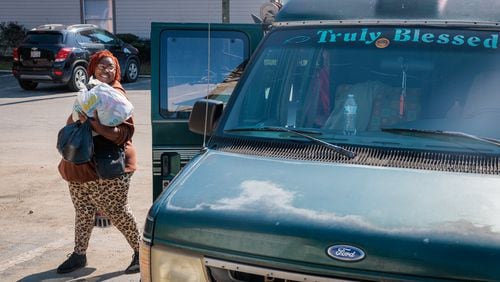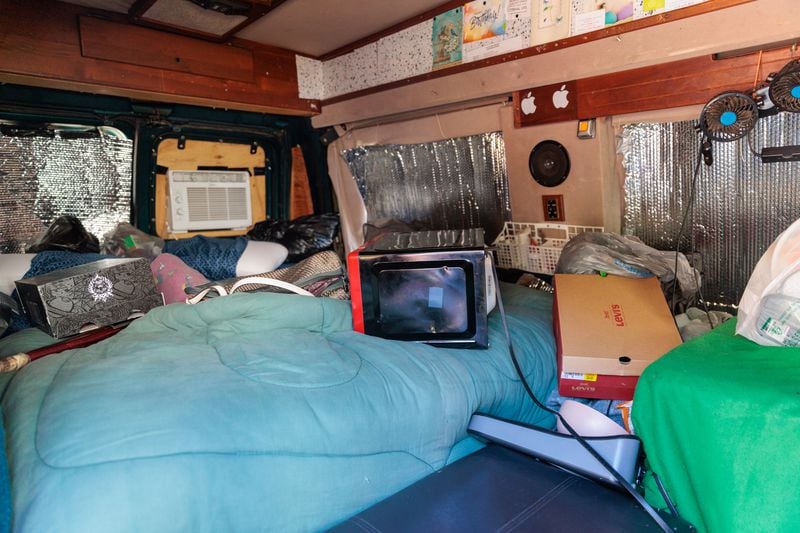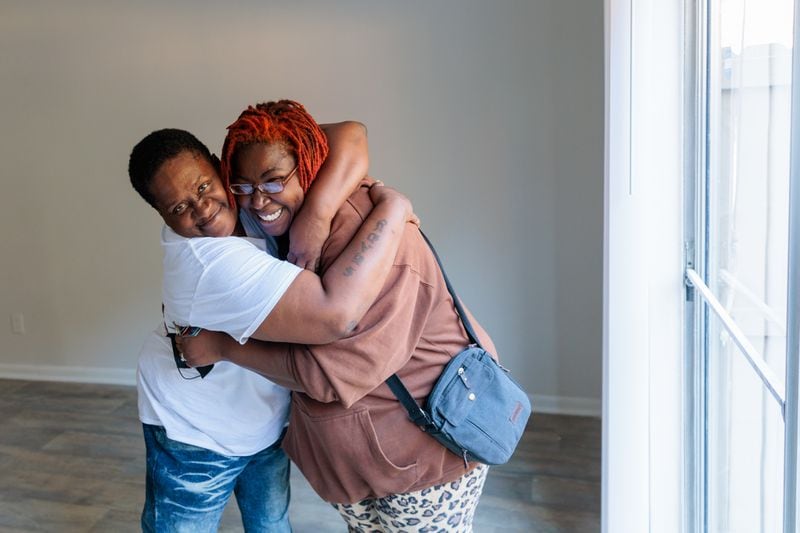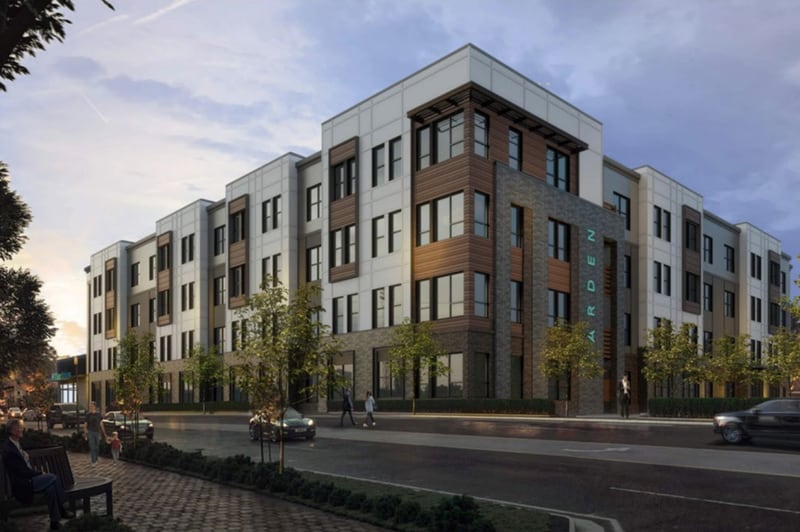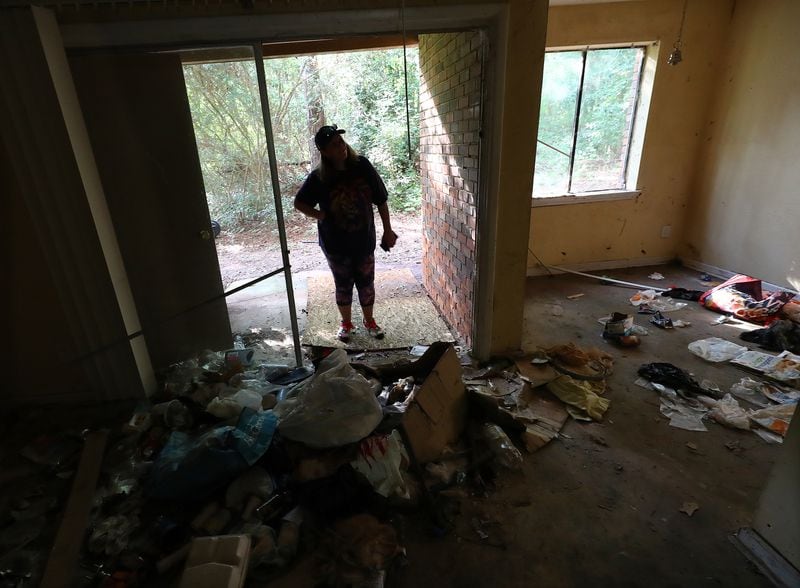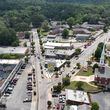Synya Bradshaw and Maria Hairston moved to Georgia from North Carolina with nothing but their clothes and few personal items a year ago. They came to Atlanta for opportunities, but the expensive housing market forced them to sleep in their van for months.
Hairston said things turned around in August when an organization working with the city moved the married couple into a motel. In November, they signed a lease for a Jonesboro townhome. Hairston said housing costs will be covered for a year or two as they seek employment.
“I’m thankful there are people out here to help us get off the street,” she said.
Working with several agencies, Atlanta currently provides permanent homes to the homeless within metro Atlanta. Mayor Andre Dickens said the goal is to provide 1,500 such homes by the end of 2024.
Credit: arvin.temkar@ajc.com
Credit: arvin.temkar@ajc.com
Partners for HOME CEO Cathryn Vassell said Atlanta residents make up 70% of Atlanta’s homeless population. She said their LIFT 2.0 plan is investing $26.6 million in city, state and federal funds to meet the 1,500 households goal.
“We’re trying to keep an active pulse on every encampment in our community...to begin the next steps of getting folks off the street and into housing,” Vassell said.
The city leases an entire hotel for temporary housing, Vassell said. She said they hope to obtain more transitional housing options for people leaving encampments or preparing for permanent homes.
Vassell said the Open Doors nonprofit finds landlords willing to house people. The Project Community Connections nonprofit covers housing costs for them. Atlanta is currently seeking 600 units in the first phase of LIFT 2.0, she said.
Credit: arvin.temkar@ajc.com
Credit: arvin.temkar@ajc.com
Atlanta established a Homeless Opportunity Bond in 2017 that paved the way for a $22 million investment into contracts with affordable housing developers to build more than 560 units, Vassell said. She said Fulton County is covering mental health services for those households over the next 30 years. Terri Lee from Atlanta Housing said they’ve provided more than 500 housing vouchers as rental assistance.
Most of the homes are new developments, city documents show. This list includes the 55 Milton mixed-income community on the Southside Beltline Trail, and another development in Grove Park on Donald Lee Hollowell Parkway. Two complexes in Old Fourth Ward — 1265 Lakewood Ave., and 1055 Arden Ave. — are also listed with several other developments.
The pipeline also includes rehabilitated properties like Columbia at Capitol View in Adair Park and Quest Village at English Avenue.
Credit: Atlanta Beltline
Credit: Atlanta Beltline
Vassell said her agency wants to ask the private sector to match a $10 million investment from the city’s Housing Affordability Bond to house the homeless in future projects. She also wants to build a dedicated, sustainable revenue fund to continue their work.
“Now that we’ve exhausted our dollars from the homeless bond, our plan, our hope, our dream is we can continue this pipeline,” Vassell said.
The city’s rapid rehousing initiative isn’t perfect.
During Atlanta’s first LIFT project, the city paid nearly $1.7 million to put more than 100 households in DeKalb County’s The Village at Kensington, one of metro Atlanta’s most persistently dangerous complexes, according to a Nov. 18 investigation from The Atlanta Journal-Constitution’s “Dangerous Dwellings” series.
Credit: Curtis Compton / AJC
Credit: Curtis Compton / AJC
The AJC exposé also revealed that the initial $24.1 million program placed people in Atlanta’s Pavilion Place — notorious for rats, plumbing backups and a recent code enforcement crackdown. Others were placed in DeKalb County’s Park Valley — where rapes, assaults and robberies have occurred— and Clayton County’s Elite at 285, where a 20-year-old man was fatally shot in April.
During a Nov. 15 city council committee meeting, Community Development/Human Services Chair and Councilman Jason Dozier asked Vassell why the city was putting the homeless into some of the same complexes Atlanta and Fulton County prosecutors said they are targeting after the AJC report.
Vassell told the council they’ve been challenged by low vacancy rates and high rents in the housing market. She said the mayor is hosting a forum in two weeks after Thanksgiving in an effort to attract higher-class properties and landlords.
Council City Councilman Michael Julian Bond said the homelessness crisis requires federal intervention and he commended the city’s efforts.
Many residents say the city can do more.
“Y’all getting paid by our tax money,” said Curtis Hairston. “You got Black men and women and children living under bridges...I’m walking past girls that want to kill themselves because they’re homeless.”
